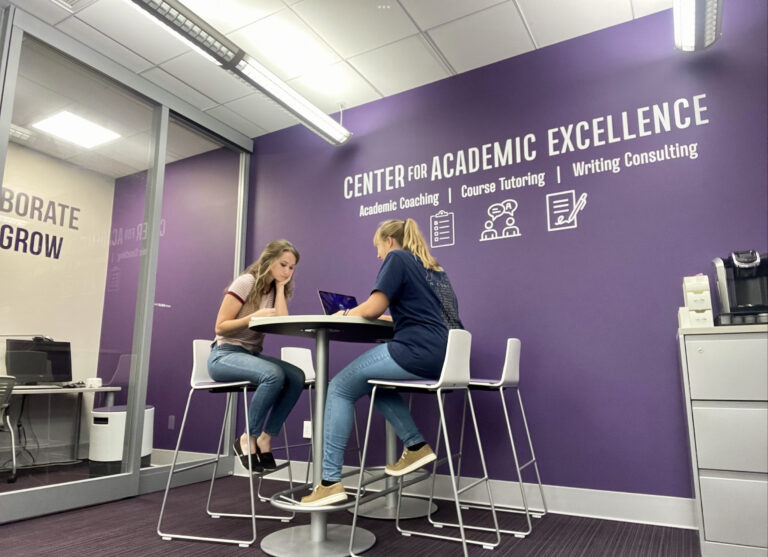This article is written based on the writer’s personal experience and does not represent all students with academic accommodations. Disability is a broad and complex term that applies to physical, emotional, and mental health.
I would not be a student at Asbury if it were not for academic accommodations.
Frankly, I don’t think I would be able to get an undergraduate degree without them. As one of the many students on this campus who walks through life with mental illness, I can say from experience how difficult it makes things in college.
Asbury is a place of high academic standards and an intense community lifestyle. Each week comprises a stream of due dates, tasks, and campus events involving a lot of student energy and investment. I knew this when making my decision to enroll here. I wanted these things.
As a student with generalized anxiety disorder and ADHD, it is much harder for me. The pressure can feel paralyzing. The number of people— debilitating.
Some days are better than others. Sometimes I glide through the day with ease. Some days I fight to do the bare minimum. Most people wouldn’t even know I had these struggles if I did not openly share them.
But I am not the only one. Many students like me are on this campus, even if they go unseen.
This is where academic accommodations come in. They fill in the gaps where certain students may need extra assistance. Accommodations range from issues as large as housing and support animals to things like extra time on exams and flexible class attendance. Academic accommodations make it so that students can succeed despite the circumstances that might hold them back, however big or small they may appear.
Asbury has made great strides in the realm of academic accessibility, but there is a long way to go.
Many students and even faculty aren’t aware of the accommodations that the academic accessibility office offers. Some students don’t feel like their struggle is “bad enough” to seek help. I still struggle using my accommodations because I feel like I don’t truly deserve them. Society tells me that I am high-functioning— an ableist term that should never be used when describing someone. So often people think the accommodations I receive are a luxury or a “get out of an assignment free card.”
As a person with panic attacks, I can say they sometimes sneak up. Making it to class is impossible. There are days when my mind cannot physically do the work required because of my attention deficit disorder. This sometimes means needing extra time on an assignment or an alternate testing location.
Going into my first year, based on previous experience, I knew that having a roommate took a toll on my mental health. So I have single housing. Accommodations are what help me maintain my well-being at Asbury. They are not merely a convenience to make college easier. They make college possible for people like me.
My plea is for understanding.
Many students who have accommodations have disabilities that are not necessarily visible. That does not make them invalid. These students have accommodations for a reason, and they should be honored no matter how the student may appear.
Students should never feel ashamed for asking for the assistance they need and should never feel unworthy of receiving help.
The contact information for the Academic Accessibility office is on Asbury’s website.
If you are a student who feels like there may be accommodations that are necessary for you, don’t be afraid to reach out for more information. We want you to succeed, and academic accommodations are here to help you do just that.



